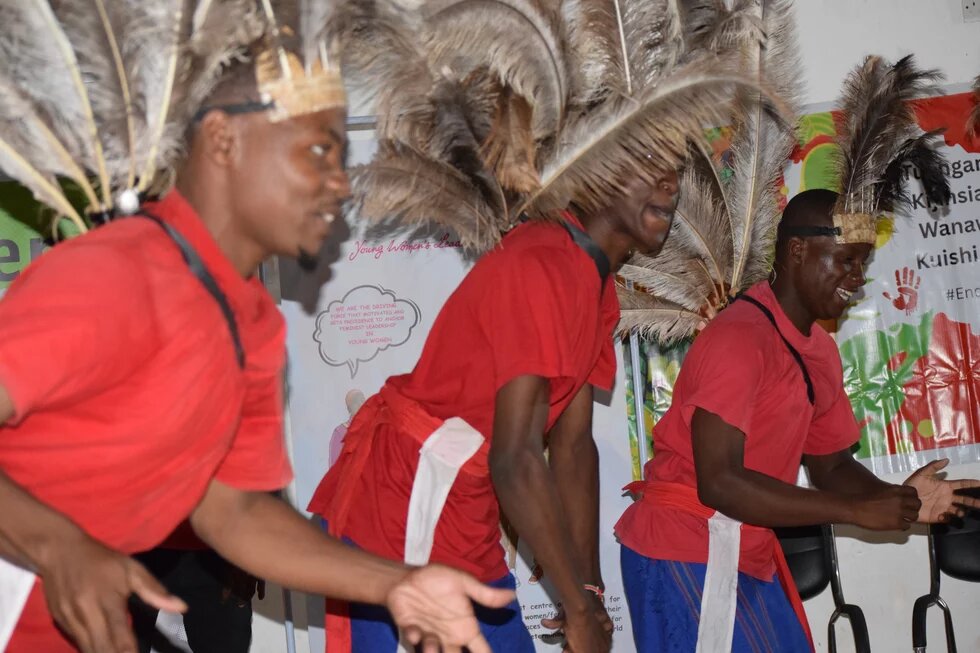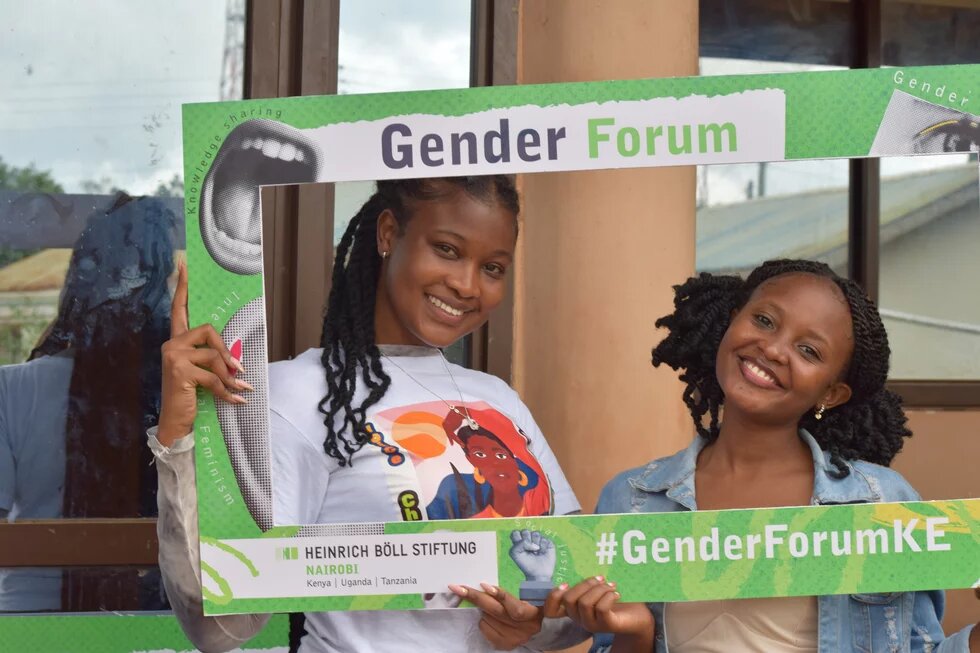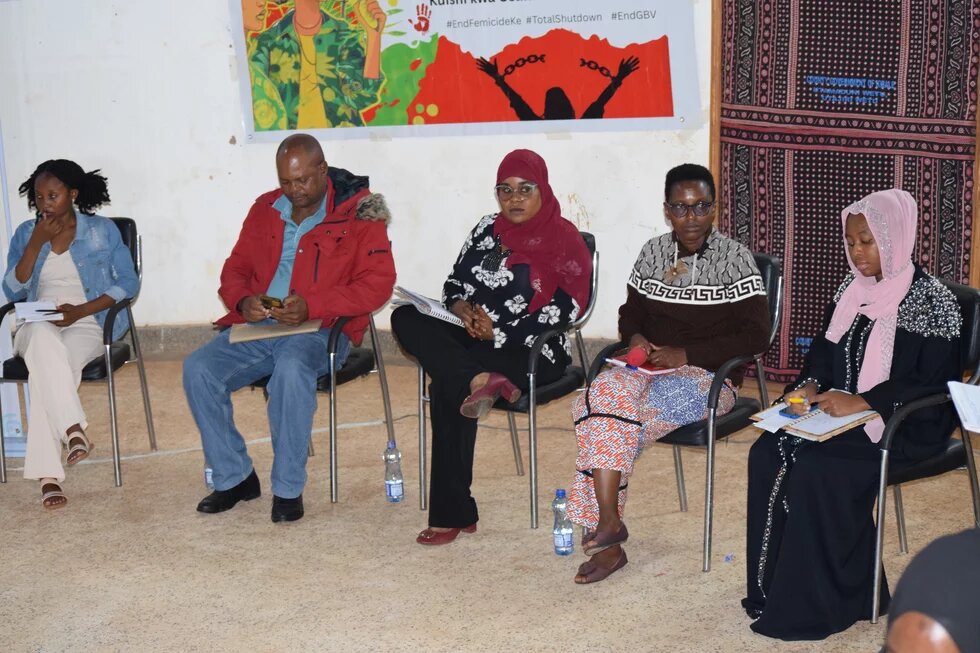
Grassroots advocacy is not just a strategy; it is a necessity. This time, we took the discussion to Kwale County, where cultural norms, economic hardship, and systemic gaps converge to fuel gender-based violence (GBV). For urgent action, the most effective and sustainable change must come from within the community itself.

The primary reason we host and organize #GenderForumKE is to promote grassroots advocacy and encourage public discussions that lead to urgent action and accountability for gender equality. Grassroots advocacy is not just a strategy; it is a necessity. This time, we took the discussion to Kwale County, where cultural norms, economic hardship, and systemic gaps converge to fuel gender-based violence (GBV). For urgent action, the most effective and sustainable change must come from within the community itself.
On June 2, 2025, at the Kwale Cultural Centre, in collaboration with our partners, Young Women Leadership Institute and Dada Rising CBO, we hosted a powerful Gender Forum centred on advocating for the end of GBV and Femicide in the county. The forum was a clarion call for community-led solutions to end these injustices against women and girls. It brought together local leaders, youth, civil society actors, survivors, and cultural performers in a bold act of grassroots organizing.
Why Grassroots Advocacy Matters in Kwale
Kwale County faces deep-seated challenges: early marriages, teenage pregnancies, economic dependency, harmful traditional practices, and silence surrounding violence against women and girls. Structural weaknesses, from poor enforcement of GBV laws to a lack of accessible justice systems, have left survivors without support.
In this context, top-down approaches often fall short. Community-driven advocacy is needed to raise awareness and reshape power dynamics, cultural norms, and access to justice. This Gender Forum aimed to model just that.
Ground-Up, People-Led Engagement
The event began with community-building activities and a vibrant performance by the Sengenya Traditional Dancers, demonstrating the power of culture to unite and mobilize. Panelists included a member of the county assembly, the local chief, youth leaders, and representatives from grassroots feminist organizations, such as Dadas Raising.
The discussions delved deep, covering gaps in the justice system, youth involvement, survivor-centered approaches, and local leadership accountability. Most importantly, it created a safe space for participants to share their lived experiences with femicide and GBV, breaking long-held silences.
“Our voices matter. Real change will only come when it starts with us.”
— Community Member, during interactive session
Key Highlights: Building Local Movements
- Grassroots Leadership at the Center: The forum showcased how local duty bearers—chiefs, MCAs—and youth can jointly lead advocacy and support systems when adequately engaged.
- Amplifying Marginalized Voices: Testimonies from rural women and women with disabilities revealed often-overlooked realities.
- Youth as Drivers of Change: The Kwale Youth Assembly called for sustained youth inclusion in community action and policy-making.
- Cultural Relevance: The traditional dance performance wasn’t just entertainment—it grounded the dialogue in familiar cultural expressions, making advocacy accessible and relatable.
What We Learned About Local Action
- Mental Health Must Be Localized: Many participants revealed unresolved trauma. Access to community-based psychosocial support emerged as a critical need.
- Silence is Still a Barrier: Despite growing awareness, the fear of speaking out persists. Local reporting mechanisms must be safe, survivor-friendly, and destigmatized.
- Justice Starts in the Village: Chiefs shared firsthand challenges handling GBV cases, including stigma, underreporting, and lack of resources. Community-level systems need reform and investment.
- Traditional Culture Can Be an Ally: The use of performance to open the forum reminded everyone that advocacy can thrive in culturally grounded forms.
The Path Forward: Grassroots Recommendations
- Scale Up Local Mental Health Support
Train community actors in trauma-informed care and set up referral systems to local therapists and safe spaces.
- Break the Culture of Fear
Collaborate with local champions to develop survivor-friendly, anonymous reporting systems that challenge stigma and prioritize the safety of survivors.
- Invest in Grassroots Justice Systems
Support local chiefs, police, and paralegals with training and resources to enhance their capabilities. Push for faster judicial processes and better coordination between formal and informal systems.
- Economic Empowerment as Prevention
Launch income-generating programs and vocational training for women and girls to reduce dependency and increase agency.
- Prioritize Marginalized Groups
Design locally adapted programs for rural women and women with disabilities, ensuring outreach materials are accessible and inclusive.
- Sustain Youth Mobilization
Empower young leaders to organize school-based education, peer dialogues, and awareness campaigns. Include boys and young men as allies in prevention efforts.
